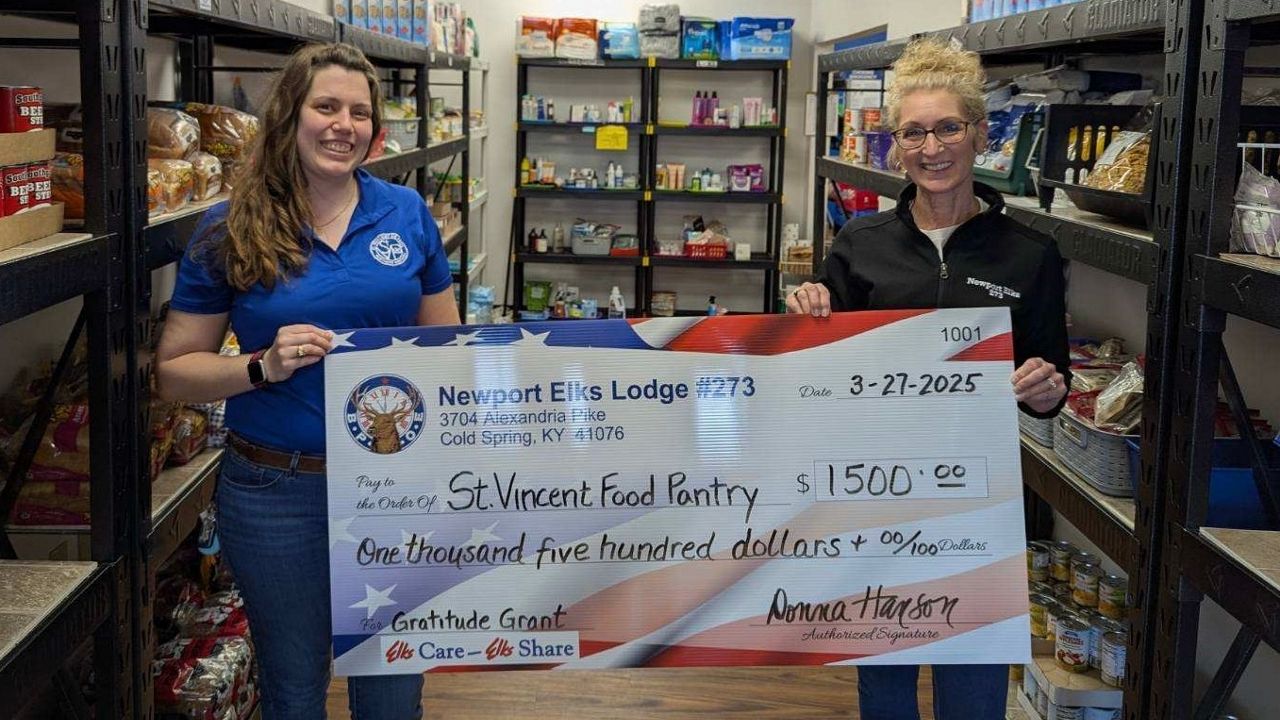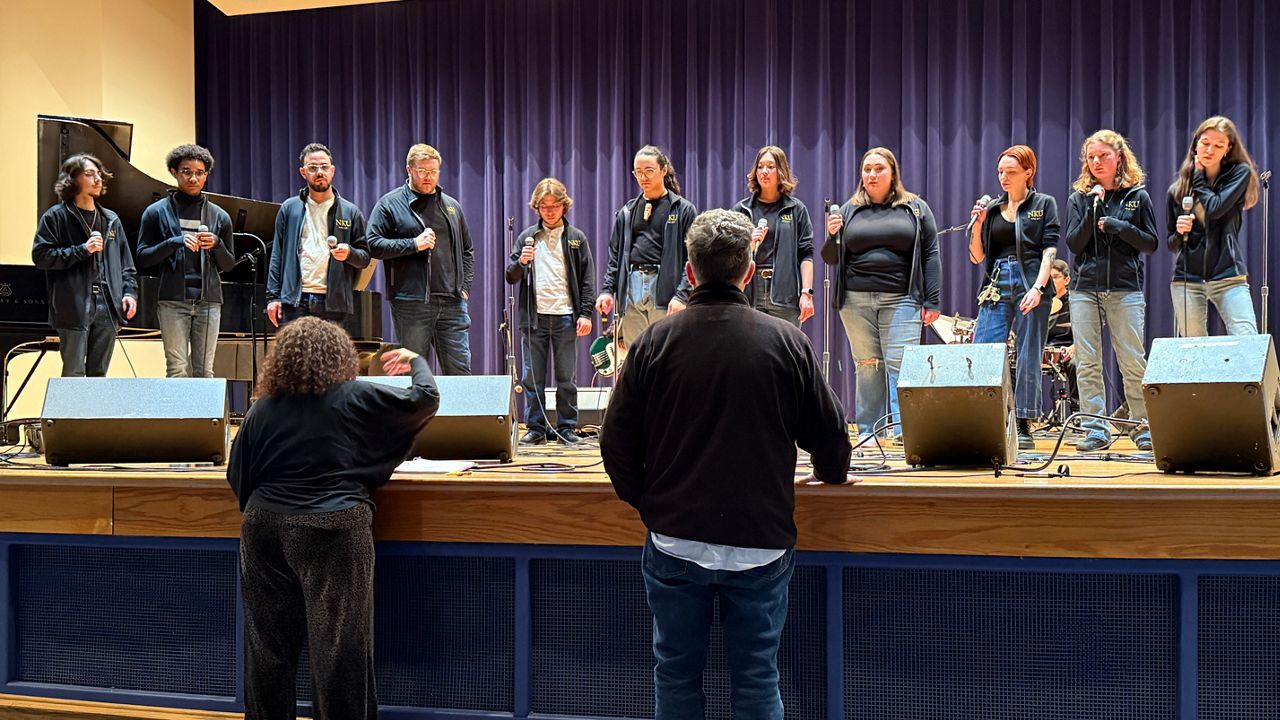EDGEWOOD, Ky. — A northern Kentucky doctor says people should not panic about Monkeypox, but should take the proper precautions, especially those who are currently most affected.
While cases are still rare in Kentucky, the number of cases has continued to rise.
There are now over 18,000 cases of Monkeypox in the United States according to the CDC. 30 of those are in Kentucky.
The virus can lead to the development of painful lesions that can last a month. It is rarely deadly, and most cases don’t require hospitalization, according to Dr. Dora Savani, medical director of the Infectious Disease Response Team for St Elizabeth’s Edgewood campus.
“There’s no need to be in panic mode. Not everybody’s going to develop monkeypox. And hopefully, we’ll have control of this epidemic soon,” Savani said.
Savani recently returned from a trip to Brazil, where she was helping with Monkeypox efforts.
It’s a much different virus than COVID-19. Monkeypox is not transmitted through the respiratory system in most cases.
“It requires very close contact. Hugging, kissing…. Monkeypox can be transmitted by linen, bed sheets, towels,” Savani said. “More than 97 percent of the cases in the United States have been amongst men who have sex with men, transgender and bisexual men, so we’re targeting that population.”
To be clear, Savani said, Monkeypox is not a sexually transmitted disease, but that population happens to be where it’s currently spreading.
Ron Padgett, a prominent member of the LGBTQ+ community in northern Kentucky, said he brushes off any stigma people might try to attach to his community in relation to Monkeypox.
“We have been accused by so many of so many, many, many things, including weather patterns, hurricanes, earthquakes, floods, droughts, mass shootings, you name it. There are just people out there who will always look for somebody to blame. And unfortunately, we live in a culture where the go-to is generally the LGBTQ+ community. So I’m used to it,” Padgett said. “I don’t really pay any attention to it. To be honest with you, it’s just a big eye roll. I just roll my eyes when I hear people express such complete and utter ignorance.”
The most effective tool against the virus, Savani said, is the JYNNEOS vaccine, which has few side effects. When the current outbreak began, there were limited amounts of the vaccine, but since the CDC changed its instruction on how the vaccine should be applied — from subcutaneously to intradermal — what used to be a single use vial can now be divided into doses for five people. According to Savani, it is just as effective. She said northern Kentucky initially received about 300 of these vaccines.
It’s one of two vaccines used to prevent monkeypox and smallpox in the United States. The other is the ACAM2000 vaccine, which was approved in the United States in 2007. It has more side effects and is not being used during the current outbreak.
“I’d like everybody to be vaccinated. I’m a big proponent of the vaccine. But as I speak today, the CDC is not recommending the vaccine for the general population as yet,” she said. “The concern is it could spread through the population.”
Padgett said he’s not seeing people in his community rush to get vaccinated yet.
“I think a lot of people are still just kind of in the let’s wait and see what happens phase with it. I think that if we see an uptick in cases, and it becomes more of an issue, I think that you’ll see people wanting the vaccine increase proportionately, of course. I would definitely go get the vaccine if I thought it was a serious threat to me,” Padgett said.
The Northern Kentucky Health Department has provided over 500 vaccinations to individuals to date, and can accommodate several hundred additional appointments with current supplies. More vaccines are expected to be available in the coming weeks. At-risk individuals are strongly encouraged to take advantage of this opportunity now, according to the department.
“The Monkeypox vaccine supply currently is keeping up with demand, however, we believe that there are many more eligible individuals in our area that have not scheduled an appointment. I hope this changes and more folks decide to get vaccinated to protect themselves and those they interact with. The illness has symptoms that can become severe and can last for up to a month. Vaccination offers protection from these conditions.” said Steve Divine, interim district director of health for NKY Health.
NKY Health is offering vaccines as post-exposure prophylaxis to close contacts of confirmed monkeypox cases to prevent onset of symptoms and reduce further community transmission.
NKY Health is also vaccinating individuals who are at higher risk of monkeypox exposure. Individuals who are considered higher risk include:
- Gay, bisexual, transgender women and nonbinary persons assigned male at birth, and other men who have sex with multiple or anonymous male sexual partners
- Sex workers
- People who are on PrEP
- People who had a diagnosis of gonorrhea and/or syphilis in the past 12 months
- People who attend venues or frequent establishments where sex-on-premises occurs
There is no cost to individuals to receive the vaccination from NKY Health. Eligible individuals can schedule an appointment to get vaccinated against monkeypox by calling (859) 363-2040. They will be screened then scheduled for an appointment if eligible. Vaccinations are currently being provided out of health centers, with the largest amount of available appointments out of the Kenton County Health Center.
The department provided the following tips for preventing the spread of the virus:
- Have conversations with partners before close, intimate contact. There is no safe way to have sex with a person infected with monkeypx
- Avoid close skin-to-skin contact with anyone who has a rash, scabs or lesions
- Do not touch the rash, lesions or scabs of a person with monkeypox
- Do not kiss, hug, cuddle or have intimate or sexual contact with someone experiencing monkeypox
- Do not eat or drink from the same dishes, cups or utensils as someone experiencing monkeypox
- Do not handle or touch bedding, towels or clothing used or worn by someone with monkeypox
- Wash your hands often with soap and water or use an alcohol-based hand sanitizer
“It is important for individuals at greater risk of contracting monkeypox to take steps to protect themselves and to reduce the transmission of this illness. Vaccinations are available and we are ready to provide them to those in need,” Divine said.
Additional information about monkeypox and vaccination opportunities can be found on NKY Health’s website.










